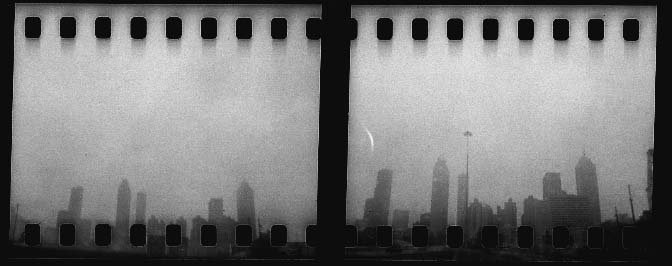
It is Saturday morning and I have been retracing my thoughts since Atlanta.
Wednesday, March 17
“I wish I could get a massage.”
This is what I told my husband over the phone that evening. My back was tight. I have been teaching online and writing a dissertation, hunched over a screen, every day. But here in the Czech Republic, wellness services like spas are shut down because of COVID-19 rules.
“Don’t go to Atlanta,” he said.
I thought that I misheard, or maybe he misspoke.
“Atlanta?” I responded.
“You don’t know?” he asked.
It was evening in Europe. I skipped checking the news that morning and I didn’t check during the day.
“Don’t look it up,” he said right away. “Not something you want to read before bed.”
Of course I checked the news right away. My instinct was to assume that there was a shooting, because that’s what I have come to associate with breaking news in the U.S. Sure enough, the top headline in the New York Times had the word “Shooting” largely bolded, mixed up with the word, “Spa.” It was getting late. I was too physically and mentally fatigued to read beyond the headline or check other media outlets. My takeaway before going to sleep that night was: another mass shooting in America.
Thursday, March 18
When I woke up the next morning, I found that I had become the recipient of messages from friends, expressing grief to me over the shooting, asking me if I was okay, and sending me love in solidarity.
My initial reaction was: “Why me?”
I took the morning to catch up: “What the hell happened in Atlanta?”
Friday, March 19
“Atlanta” became further contextualized, and during those hours, messages from other friends trickled my way.
Saturday, March 20
It is Saturday morning, and I can’t stop thinking about gendered and racialized violence against women’s bodies for three reasons. First, it’s because gendered violence is scheduled on the syllabus for my students next week. Second, it’s because I’ve been writing a chapter—and an entire doctoral thesis—about how race, gender, sex, and class shaped white ideas of and actions towards Asian women’s bodies in French colonial Cambodia. Third, it’s because I exist inside of an Asian woman’s body.
I began to understand. This is why friends reached to me. Because me is an Asian woman.
I am usually fastidious about staying up to date with what’s going on in American society since I live outside of the U.S. (The 2020 election messed with my sleep cycle.) I had known about the increase in reports of anti-Asian hate crimes since the start of the pandemic. Yes, it was a concern to me, since many of my loved ones are people in that community. Yet, when I received these messages from friends, I found myself asking: “Do I have some sort of duty to feel and react in a certain way because I’m an Asian woman, because I’m supposed to identify with those murdered women?” I felt guilty about having to even ask myself this.
I asked myself these questions because I have perhaps not reacted as viscerally to reports of Asian hate as I would have, had I been living in the U.S. For most of the last year, I have been outside the country, and because of COVID-19 lockdowns and cold European winters, inside buildings. For this reason, I felt that I did not have the authority to engage in conversations about the increase in assaults on the Asian-American community. But these messages from friends, and the shootings in Atlanta, have caused me to reflect on moments of racism and sexism that I have experienced in my Asian woman’s body.
Growing up in southern California, where there is a large Asian community, I was regularly asked about my ethnic identity, or my ethnic identity was assumed by my interrogator. The popular assumptions were Chinese (because there are a lot of them, so why wouldn’t I be, or because the person did not know many other countries in Asia) or Filipino (because my skin is browner, and nose is flatter, so that meant I probably wasn’t one of the fair-skinned, pointy-nosed northeastern kinds of Asian, and I probably hailed from one of the jungle races huddled near the equator).
When I was a graduate student living in Baltimore, random people on the street asked me that ubiquitous question that many Asian-Americans get asked, the “Where are you from?” One man on a bicycle slowed down on the street to ask me this question. I knew he wanted me to say some place in Asia, but I told him California. His response was to clarify his question to, “No, where are your ancestors from? You have this island look.” I guess I was supposed to take that as a compliment, considering the value that white American culture places on the tropical glow. Another day in that same neighborhood, a group of black men doing construction work smiled and yelled out to me, “Konichiwa!” I am not Japanese, but I remembered from elementary school that this was Japanese for “Hello!” I happened to be in a good mood that day, so I smiled and yelled back, “Konichiwa!”
I hear this discussed in AAPI discourse all the time, in sobering or humorous forums: you can’t not get noticed for being in an Asian body. This is the case even if you’ve been privileged enough to receive a college education. In 2010, a (white female) census worker asked me the ethnic identity of my parents. I told her that my mother is Cambodian and my father is Vietnamese. She energetically responded, “Wow, your English is so good!” That was supposed to be a compliment too, like having island ancestors.
You can’t not get noticed for being in an Asian body. At an Irish pub (that obligatory ritual space of all under-age and of-age American college students), a white man came up to me and asked, “Are you Cambodian? I went to Cambodia once, so I can tell you’re Cambodian.” I guess I had to give him some points for knowing more about Asian geography than the average American? But I quickly shut the conversation down. The pub was crowded and strange bodies grazed me. I just wanted to get my cider and be with my friends. I did not want to talk to this tall and tipsy white man, hovering over my 4-feet and 11-inches, desiring that I pat him on the back for accurately identifying me based on whatever visual calculations he had made of my body.
I see the discourse in U.S. media repeatedly calling this an “American problem.” Secondary source reporting and primary source testimony say Atlanta was the result of American imperialism, American white supremacy, and American anti-Asian racism and sexism. There is a long history of racism and sexism towards Asians and Asian women in the U.S. But I want to nuance this characterization by emphasizing how racism and sexism against Asian women operate everywhere.
The first time I traveled in Thailand with my husband (a white man), several locals asked if we were on our honeymoon. This was awkward, because we were not dating at the time, and we had not even been friends for that long. (More recently, I was asked if I was his daughter—even more awkward.) Upon noticing women working as sex workers and in massage parlors of downtown Bangkok, I became very aware of being an Asian woman walking the streets with a white man. I know this sounds stupid, but I was compelled to speak English out loud (I normally speak softly), enunciate my American accent (I normally hide my nationality when abroad), and use big words (I normally tire of academic jargon). People kept assuming that I was Thai and spoke to me in Thai, so I insisted on performing like a white Western educated woman. While I’m not able to hide my facial features or skin color, I try to appear as unwomanly of an object as possible. This consists of being anti-PDA, dressing conservatively, and whipping out English vocabulary.
Here in the Czech Republic, I remain conscious of what I represent. It’s harder for me to blend in with the integrated Vietnamese-Czech community because I don’t speak Czech (though I argue that I do a pretty god job at pretending like I do), but even if I did, I can’t not get noticed for my Asian body. I once sat in a doctor’s office, waiting for my husband, when we were dating. A white female nurse asked about “some Vietnamese woman sitting out there.” “That’s my girlfriend,” he said. “She’s just waiting for me.” The nurse responded, “Oh. You like exoticka.” He also told me about an old friend of his who asked him whether he was aware of what our children might look like. More recently, a Vietnamese-Czech shop owner in my neighborhood assumed that I was a cute 20-year-old Thai girl who picked up this white man. This woman is very sweet. She calls me em [Vietnamese for “younger sister”], I call her chị [Vietnamese for “older sister”], and she makes me feel at home. But even chị, a sister with an Asian woman’s body, read em (me) as exoticka. I imagine that an idea like this passed through the head of that white French man who asked my sister and I, waiting for our bus on a warm summer’s night in Paris, if we wanted to come home with him. Thank you for your hospitality, monsieur, but it’s getting late.
It is Saturday morning, and I can’t stop thinking about Atlanta as yet another infuriating story, entangled with a toxic, obstinate continuum of history, in which men (and women) punish females of the Orient for the infectious race with which they are associated, the temptations ascribed to their sex, and the dishonorable labors of their class. I can’t stop waddling like a penguin (in a very unadorable way), because my back is even tighter. I wish I could get a massage.
Contributor’s Bio
 Tara Tran is a PhD candidate in the history department at Johns Hopkins University. Her research and writing focus on the hospitality of women’s bodies.
Tara Tran is a PhD candidate in the history department at Johns Hopkins University. Her research and writing focus on the hospitality of women’s bodies.


